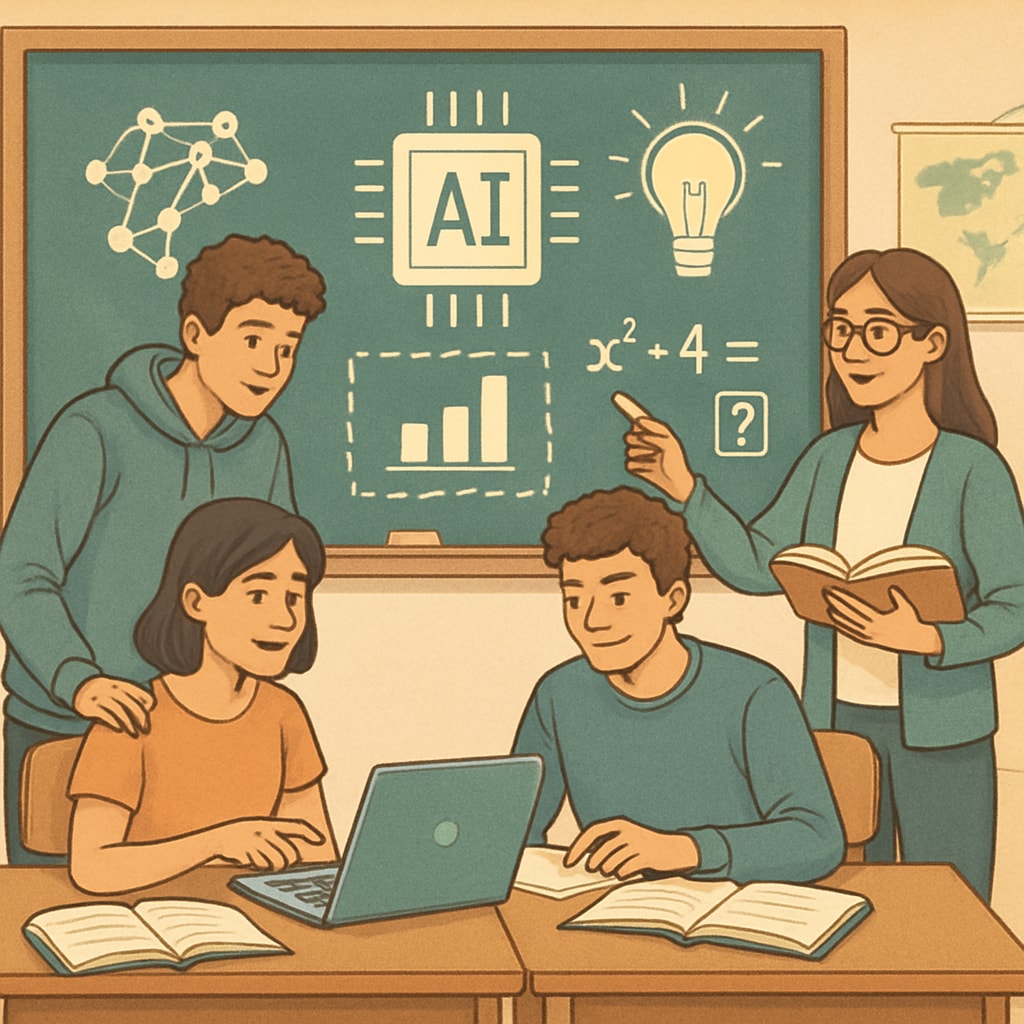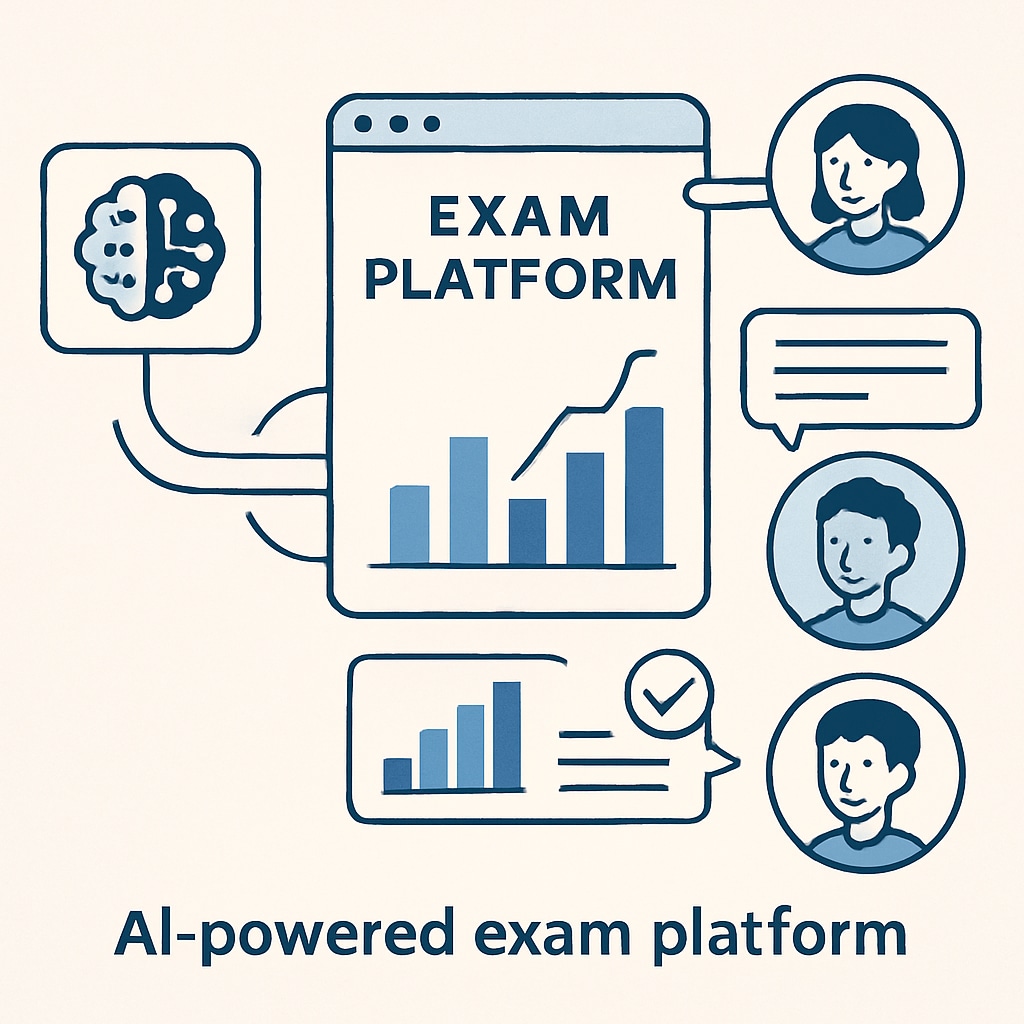Artificial intelligence (AI) is transforming virtually every aspect of modern life, and education is no exception. As AI automates tasks, analyzes vast datasets, and provides personalized learning experiences, traditional K-12 competitive exams face unprecedented scrutiny. These exams, once the cornerstone of talent selection, are increasingly viewed as outdated in an era where creative thinking, adaptability, and interdisciplinary skills are paramount. This article explores why AI necessitates a rethinking of competitive exam systems and proposes pathways to design assessments that align with the needs of the 21st century.
The Limitations of Traditional Exam Models in the AI Era
Competitive exams have long been the standard for measuring academic performance, ranking students, and determining access to higher education. However, these assessments primarily emphasize rote memorization and standardized problem-solving, which AI systems can now replicate more efficiently than humans. For example, recent advances in natural language processing, such as OpenAI’s GPT models, demonstrate how machines can generate essays, solve equations, and even simulate critical thinking.
With AI proficient in these tasks, the traditional exam model risks becoming obsolete. Instead of identifying the unique potential of students, it often rewards those who excel in test-taking strategies. More importantly, it overlooks crucial 21st-century skills such as creativity, emotional intelligence, and ethical reasoning—qualities that AI cannot yet replicate effectively.

Artificial Intelligence as a Catalyst for Exam Reform
Rather than viewing AI as a threat to traditional education systems, it can serve as a catalyst for meaningful reform. One significant advantage of AI is its ability to provide personalized and adaptive learning experiences. For example, AI-driven platforms like Khan Academy and Duolingo adjust content based on individual learning speeds, strengths, and weaknesses. These same technologies can be applied to exams, creating assessments that dynamically evaluate a broader spectrum of student capabilities.
Moreover, AI can assist in designing exams that measure higher-order cognitive skills. For instance, instead of asking students to recite historical dates, an AI-powered assessment could require them to analyze historical events, draw connections to contemporary issues, and propose solutions. Such assessments would prioritize deep learning and critical thinking, aligning better with future societal needs.
AI can also help reduce biases inherent in traditional exams. Studies have shown how socioeconomic factors, access to resources, and even unconscious biases in grading can impact student performance. AI, when properly trained, can provide a more objective and equitable evaluation of student abilities, ensuring a fairer talent selection process.

Proposed Pathways for Redesigning Competitive Exams
Reforming competitive exams in the AI era requires a multifaceted approach. Here are some key directions:
- Incorporate Project-Based Assessments: Shift from standardized tests to project-based assessments that evaluate creativity, collaboration, and problem-solving.
- Promote Interdisciplinary Skills: Develop exams that integrate STEM (science, technology, engineering, and mathematics) with arts, humanities, and social sciences.
- Leverage AI for Adaptive Testing: Use AI to create dynamic assessments tailored to individual learning styles and capabilities.
- Emphasize Ethical and Emotional Intelligence: Introduce scenarios that require students to navigate ethical dilemmas and demonstrate empathy.
- Ensure Continuous Feedback: Replace one-time exams with ongoing evaluations, encouraging lifelong learning over short-term memorization.
These changes will require collaboration among policymakers, educators, and technologists. While the transition may be complex, the long-term benefits—more equitable education systems, diverse talent pools, and students equipped for the future—are well worth the effort.
The Road Ahead: Balancing Tradition and Innovation
While AI presents challenges to traditional exam systems, it also offers unprecedented opportunities for innovation. The goal is not to eliminate competitive exams but to evolve them into tools that genuinely measure and nurture human potential. By integrating AI thoughtfully, we can create assessments that are fairer, more inclusive, and better suited to the demands of the modern world.
In conclusion, the era of artificial intelligence calls for a radical rethinking of K-12 competitive exams. By prioritizing creativity, adaptability, and emotional intelligence, we can move beyond outdated models of talent selection and embrace a future where every student has the opportunity to shine.
Readability guidance: This article uses short paragraphs, clear transitions, and bulleted lists to ensure readability. Technical terms like “natural language processing” are explained briefly for accessibility. Overuse of passive voice and long sentences has been avoided to maintain clarity.


